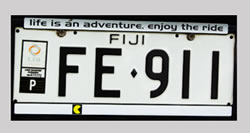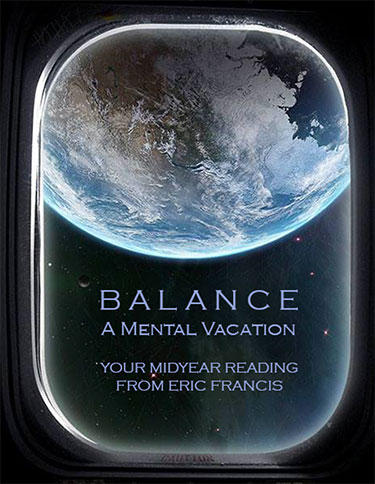Journal Entry, Saturday, Aug. 27, 2016: I approach the coming of autumn as a time of profound energy. The kind of energy that moves life: the end of summer and the beginning of the school year, the bright colors of the leaves of deciduous trees. The time of harvest. Apple season. The cycle of life and death reflected in creation.

August has rarely been a good month for me. This month again has been no exception. I woke this morning determined not to have a normal day. I got up, got dressed, no shower. Drove to the Elmwood Cafe, ordered a coffee and a biscuit, settled in and started this entry.
Yesterday at my office my friend Wendy called and left a message. I retrieved it, calling her back. We’ve known each other over twenty years, so our calls are often filled with bouts of joyful, intense gossip: “Wendola!!! What’s happening girl?”
She answered, “Fe, Britt died.”
For a moment that seemed an hour I sat stunned, phone at my head, unable to speak. It felt as though my office was my own childhood bedroom, me staring at the empty presence of mundane life: four walls; a chair; a desk; a rug. Items without meaning existing to function. When my mind attempted to respond, every thought that made an attempt to scale the wall of my own shock failed, each thought sliding down and away into a swirling pool of emotion. I couldn’t even begin to name everything I felt.
Britt, Wendy’s step-daughter, was 39 years old. A mother of a six-year-old girl named Elsa. Wife to a chef. Teacher at Longfellow School in the Berkeley Unified School District. Only daughter of my beloved friend and mentor Bob. I helped organize her wedding. Every moment of all those facts helped me to begin speaking again, and yet in summoning the experience of her existence in my life I have still arrived at the unthinkable thought.
I finally asked Wendy about the how and why. Being a nurse, Wendy succinctly described the sequence of events: she got a call from her son-in-law Steve. Britt didn’t wake to her alarm. He couldn’t wake her. He called 911. The doctor at Alta Bates Hospital couldn’t revive her. One. Two. Three. That’s it. That’s all.
There was, on every level, no possible way to prepare for this. The closest thing was the last thing I wanted to think about: being witness to my father’s death. He was on the mend from a heart attack the year before. He lost 50 pounds, looked healthy and happy, relieved to be retired and free from the back-breaking work of being a cook. I didn’t know on that day — me being 18 and full of myself — how bad he felt the afternoon I went shopping for school with my aunt.

Our 12-sign Midyear Reading on forthcoming astrology, including Jupiter in Libra, is available for instant access. You can get all 12 signs for just $57, or choose your individual signs.
We were at Ford’s Department Store and while aimlessly window shopping, I felt a strange sensation — a vibratory anguish that called me home. Acting completely out of line and disrespectful to my aunt, I ordered us both back to the car. The urgency of my feelings transcended respect for one’s elders.
We arrived quickly home, pulling in to the driveway. We were fast followed by my Aunt Ethel’s car. Mom and dad in the back seat. They were coming back from the hospital. Mom and Ethel helped my dad up the stairs. It was three o’clock.
Dad looked furious. He told the doctor he wasn’t feeling right. Even though both EEG and EKG tests at the hospital were negative, he knew he was dying.
But the doctor sent him home. At 4:30 Mom was broiling lamb chops for dinner. I sat at the table with dad, talking about the meager things I bought at Ford’s. I noticed his eyes getting bigger, the blood pulsing through the veins of his head. He stopped looking at me and began to slide down his chair, collapsing onto the kitchen floor.
I remember Mom screaming. Me dialing emergency. Mom on the floor doing CPR. The siren. The gurney. Mom and Dad leaving to the hospital again, me staying behind, closing the front door, staring at the clock and praying to God. Forty-five minutes later the phone rang. It was Auntie Ethel.
“Fe, your father died.”
The world of place and things becomes meaningless when you’re faced with finite existence. Everything about your own breathing is the only reality. All your sensory perceptors become focused on your body, the shell, and the life essence — your soul, your symbiont — existing in it. At that moment I found myself in relationship with my soul, unprepared. I had no idea how to navigate it, discover it, allow it to express itself outside of the tsunami of grief coming over me. My world was cratered, and there was now a deep slippery hole that I would have to climb to get out.
It has taken years, decades to find and keep my soul intact from the grief of this sudden loss. My father’s death awakened me to the existence of soul, spirit, as I watched the dimming of his eyes while his own spirit passed from his body, lying on the kitchen floor. I’ve seen it again and again in the deaths of humans and animals. From that day, I had to grow up as my father’s daughter and my own. I had to finish the job of parenting my father couldn’t. Now I understand why I never had children.
I am 61 years old with a lifetime of friends, family and deeds. By the grace of this experience, I am grateful that I have lived this long and this hard and I still stand. I think about my friend Bob, a father, losing his daughter; and me, a daughter, losing my father. This terrible symmetry of loss binds us together, along with all parents who lose their children and all children who have lost parents. In my community, in the world.
Elsa is only six years old and without a mother, with her dad and family to support her. The only words, the only thoughts, the only feelings I could begin to muster to tell Wendy was this: “Everyone in your family needs to love that girl like no one else on earth could be loved.” In the firmness and determination of her nurse’s soul, Wendy said, “We’ve got to rise up and be as big as we can possibly be.”

